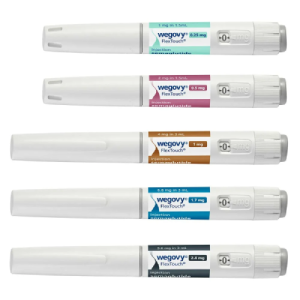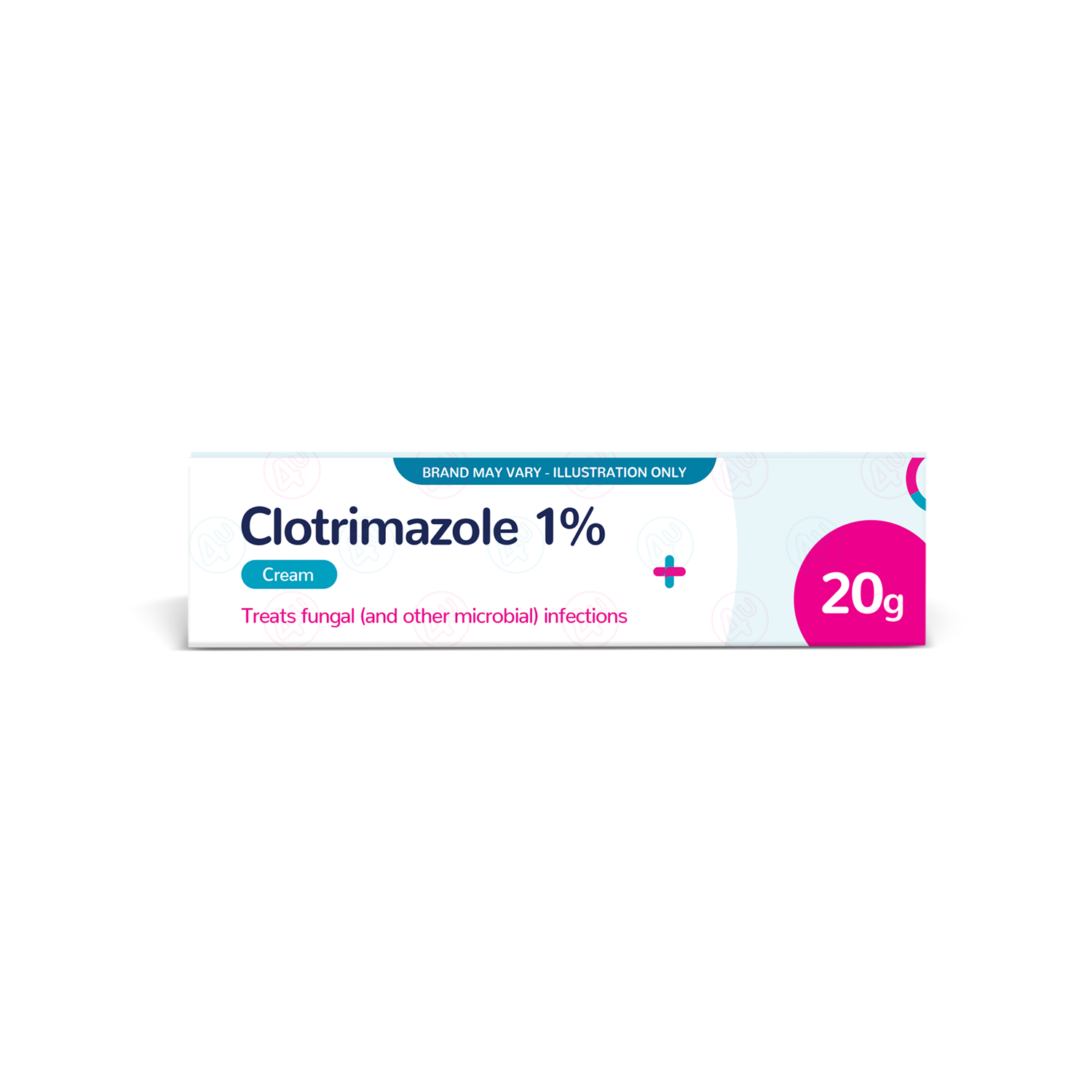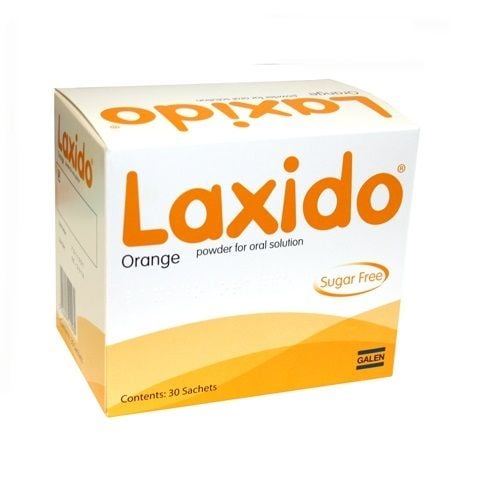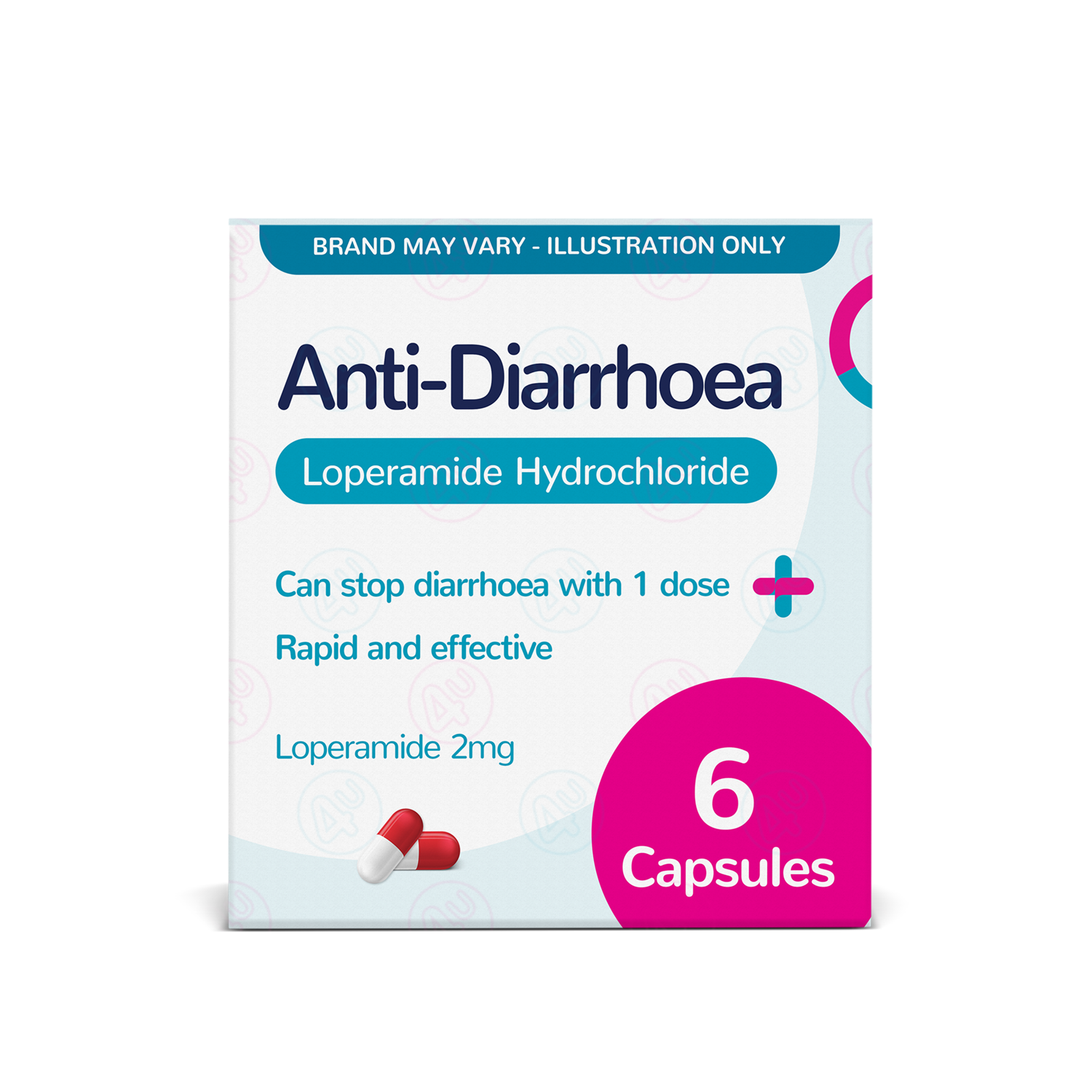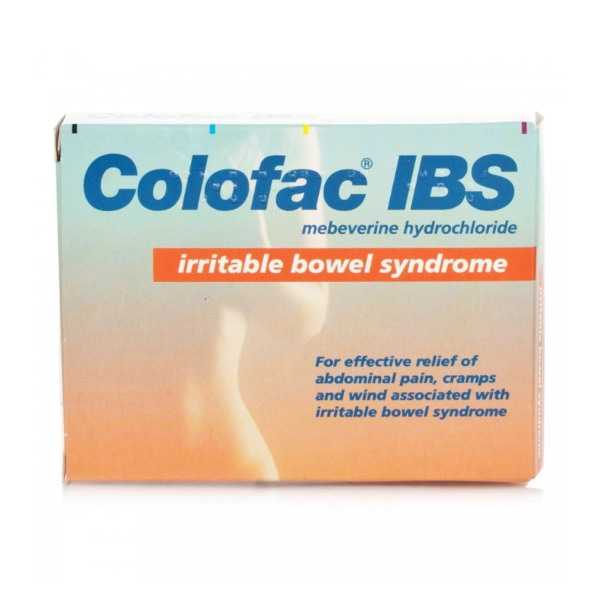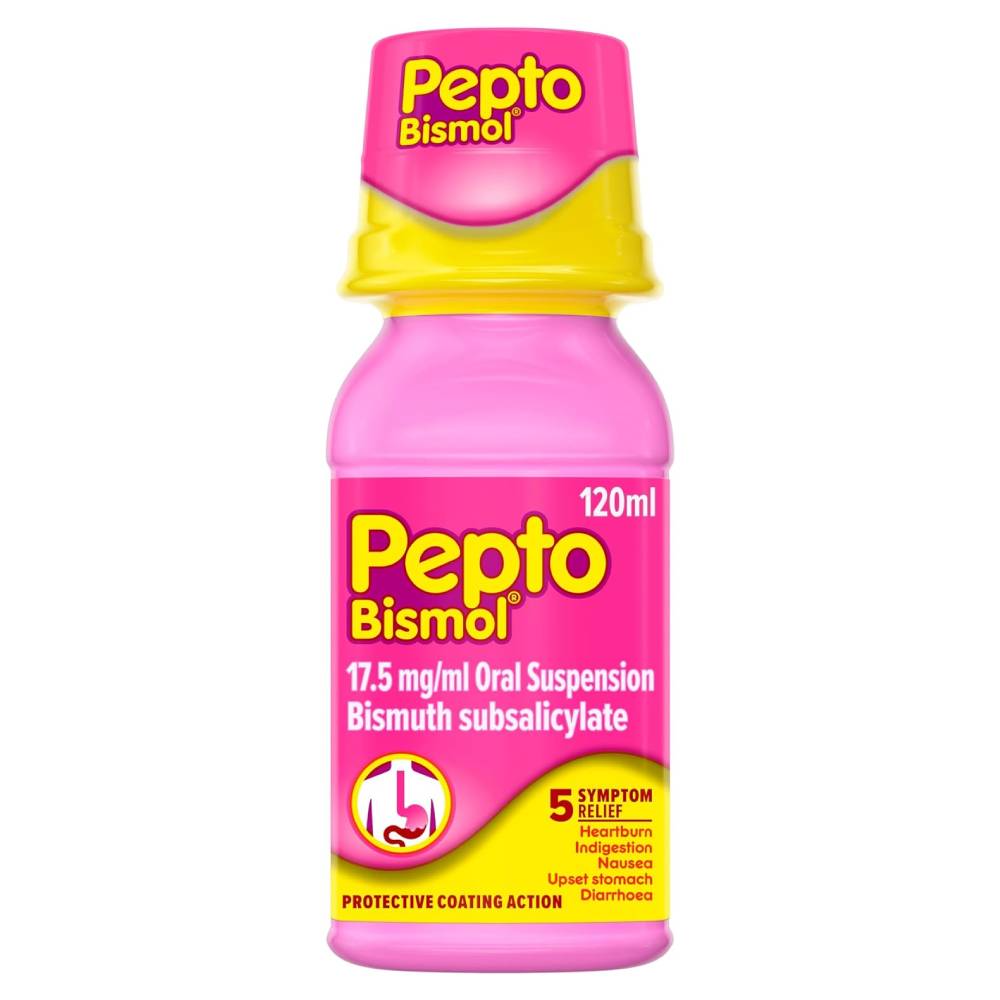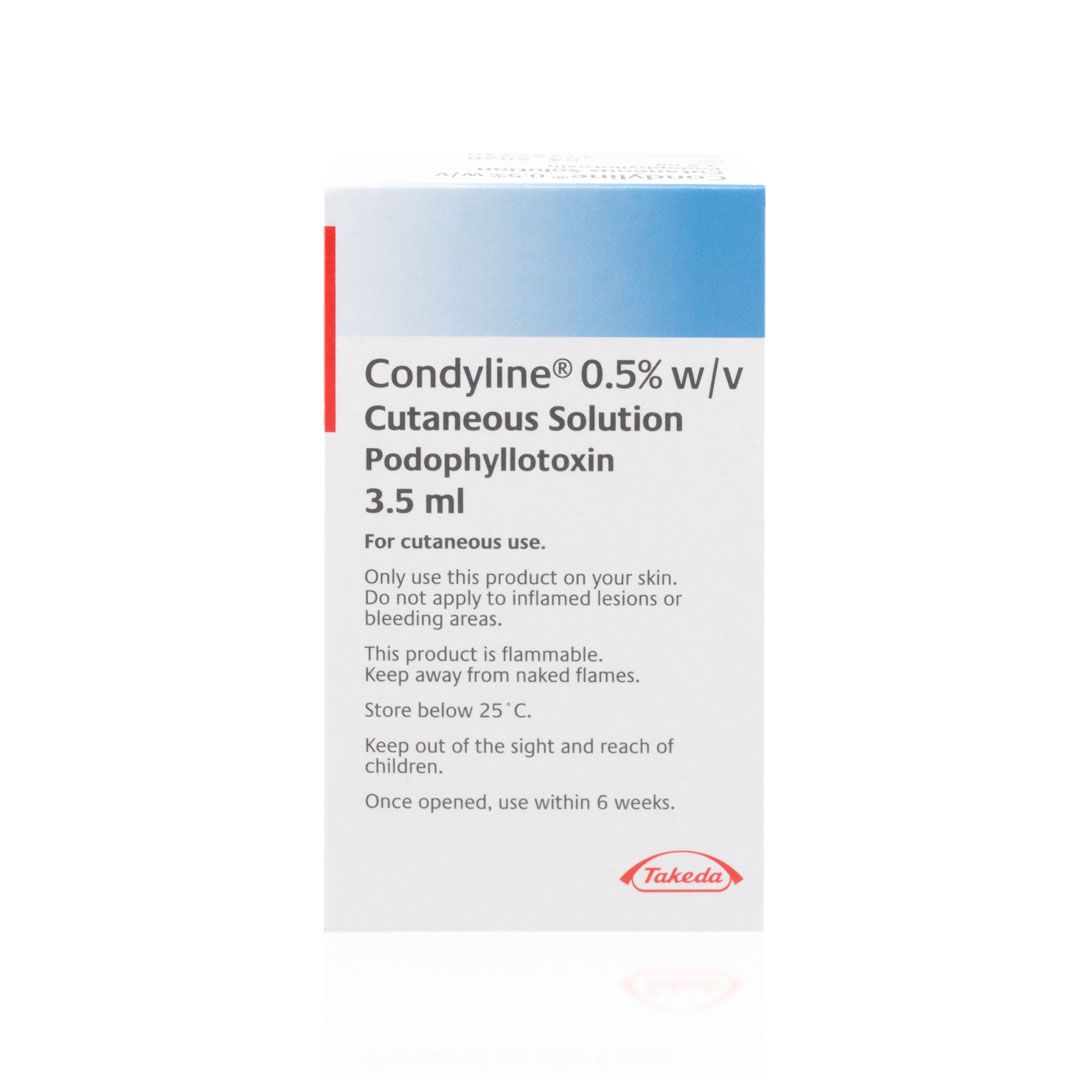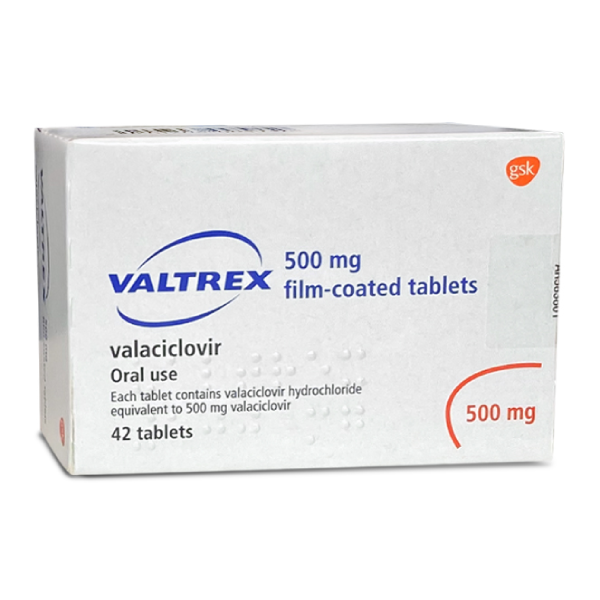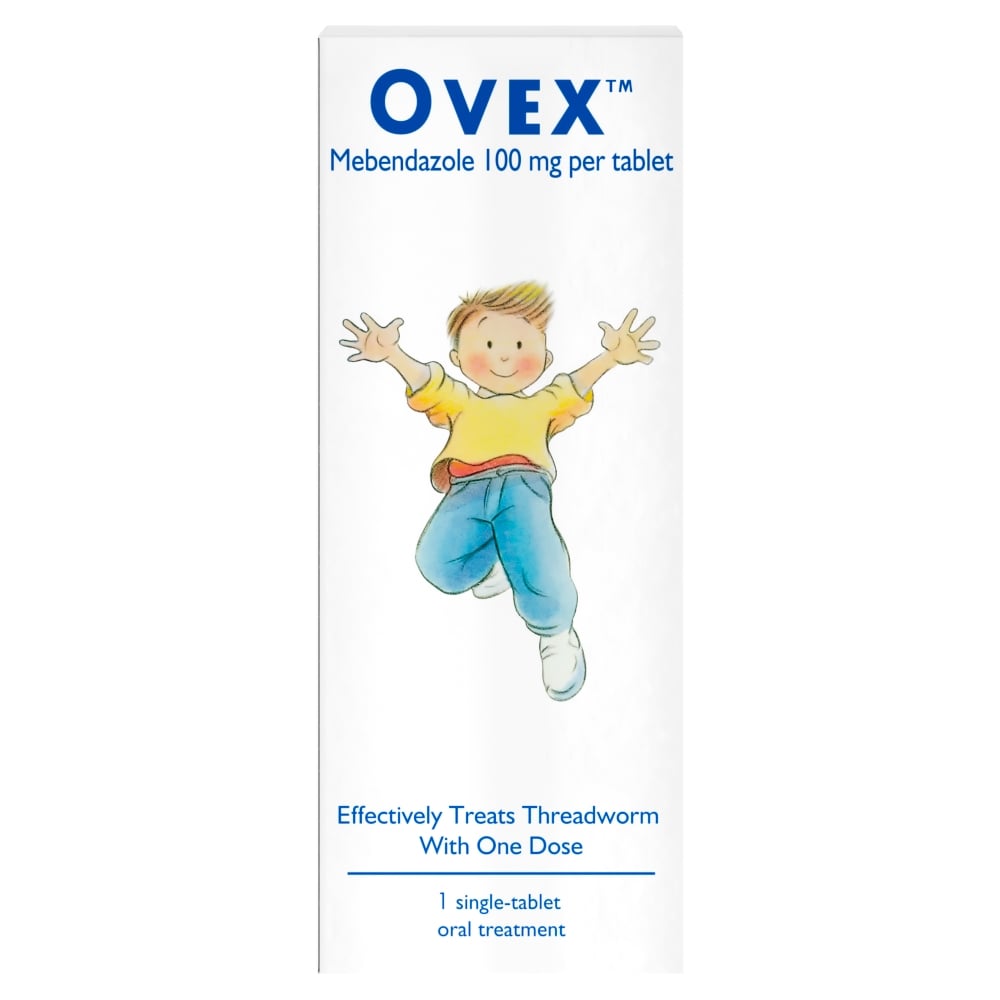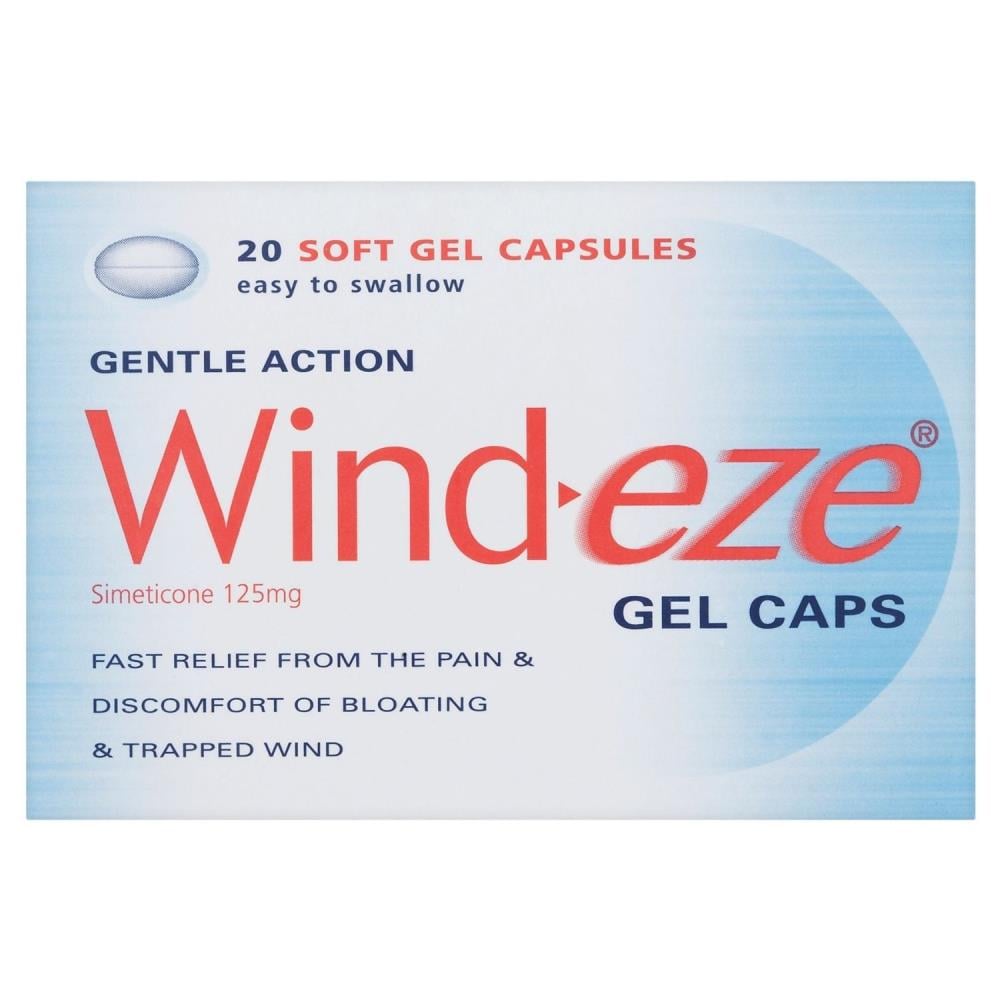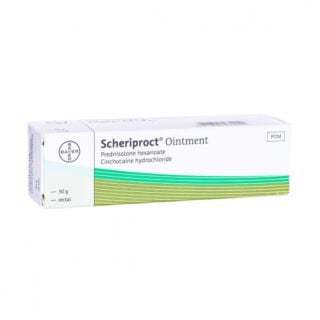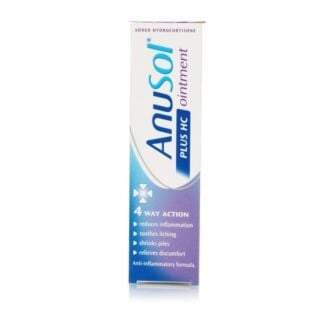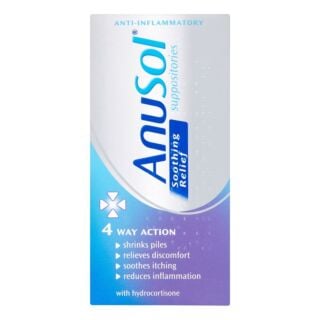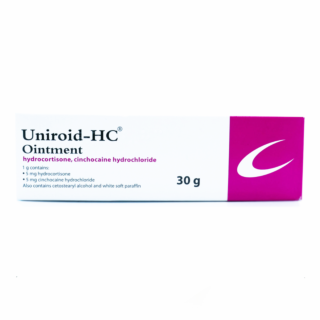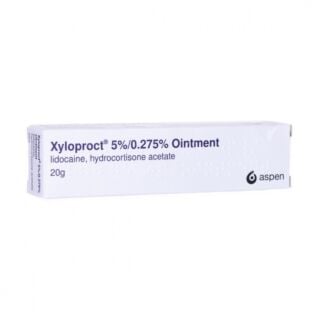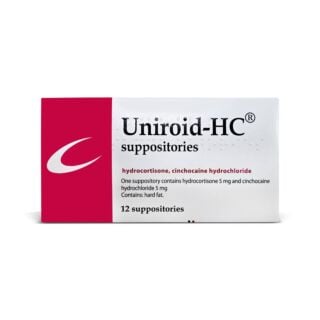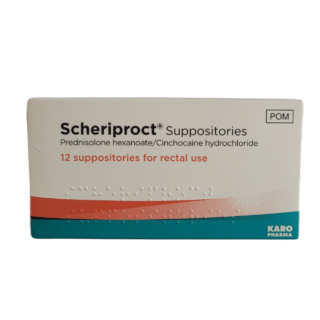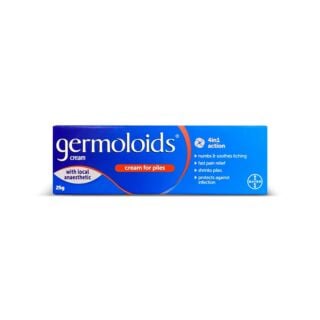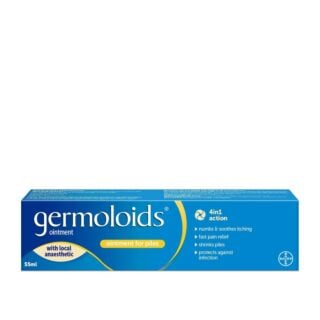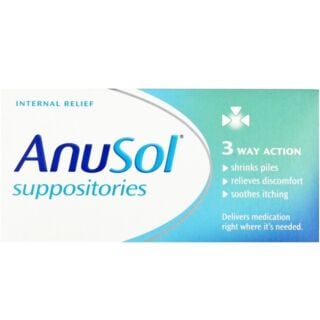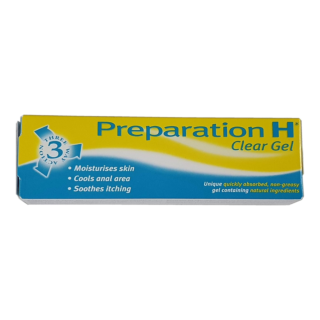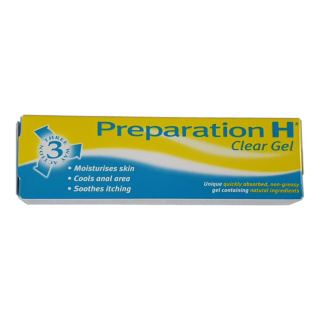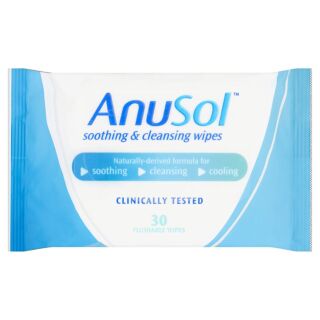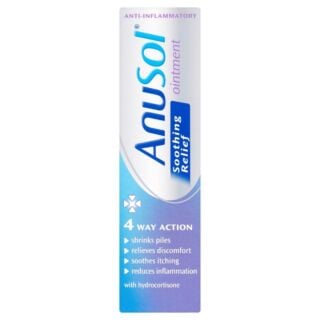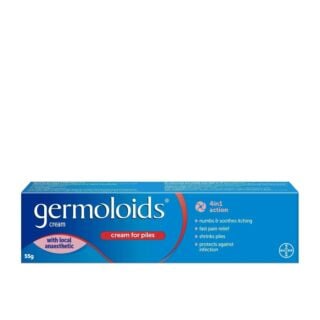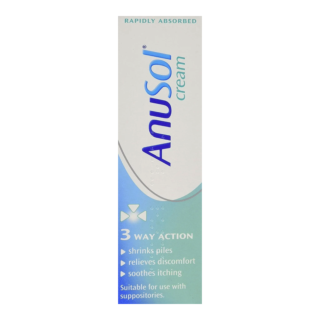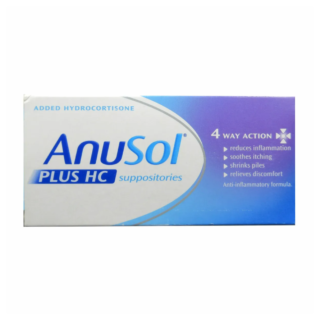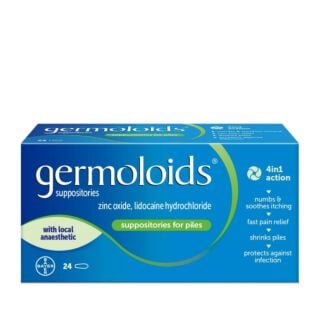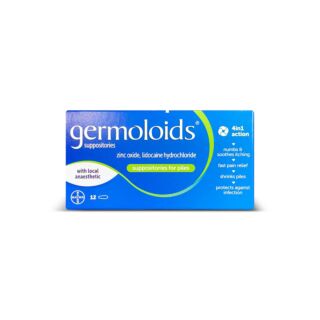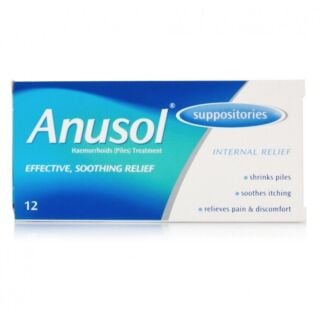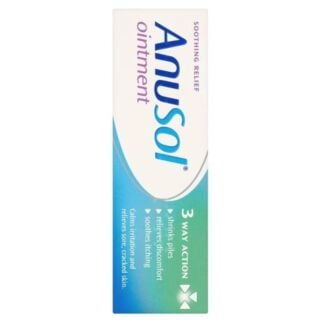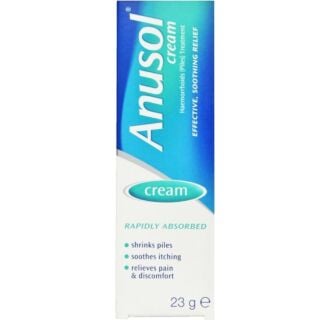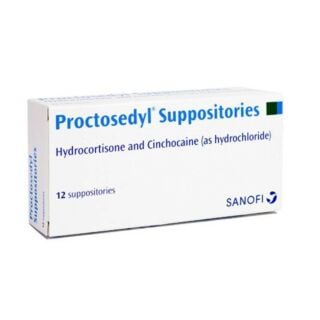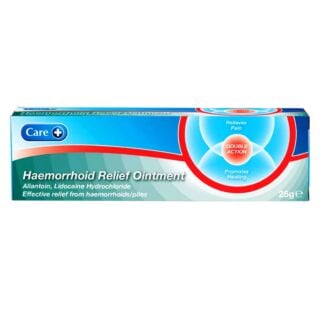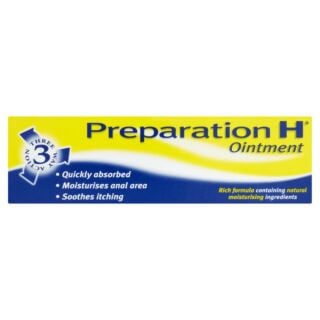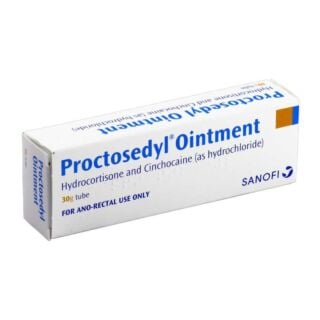Haemorrhoids & Piles
If you’ve noticed pain and itching around your anus, or bleeding after you’ve passed a stool, you may have piles (haemorrhoids).1 While it can feel as though you are the only one with piles, they are extremely common.2,3 In fact, current estimations suggest that between 13–36% of the UK population are affected by piles.2,3 … Read More See less
Of course, knowing that lots of other people also have piles doesn’t negate the impact they can have on your mental health, as pain and embarrassment can cause some people to withdraw from their social and sexual lives.2 Furthermore, many people with piles do not seek medical help until their piles become too severe to live with anymore.2
But piles are nothing to be ashamed of and, with so many people suffering with them, they shouldn’t be difficult to talk about. So, let’s discuss what causes piles, how they’re diagnosed and all the different ways that you can treat them, including the best cream for haemorrhoids. Keep reading to find out more.
What are haemorrhoids and piles?
Piles are swollen, enlarged blood vessels that form lumps inside and around your bottom (rectum and anus).1,4
There are four different types of haemorrhoids:4
- Internal haemorrhoids – first degree swellings inside your rectum. These may cause bleeding, but usually aren’t painful
- External haemorrhoids – second degree swellings underneath the skin around your anus. These can be itchy, painful and bleed occasionally. They may pop out of your anus when you go to the toilet, before disappearing inside again
- Prolapsed haemorrhoids – third degree lumps that bulge (prolapse) outside of your anus but can be pushed back inside. These may bleed or cause pain
- Thrombosed haemorrhoids – fourth degree lumps that hang down from the anus when a blood clot forms in an external haemorrhoid. These types are usually painful, cause a purple/blue lump to form and can’t be pushed back inside (irreducible)
Haemorrhoids and piles symptoms
What many people don’t realise is that we’re all born with haemorrhoids.4 However, these don’t cause any symptoms until they swell and enlarge.5 As a result, many people don’t realise they have piles at all.5
When symptoms do present, they include:1,4,6,7
- Bleeding when you wipe
- Bright red bleeding after passing a stool
- An itchy anus
- A lump hanging down outside of your anus, which may need to be pushed back in after passing a stool
- Mucus in your underwear or on toilet paper after wiping
- Soreness, redness and swelling around your anus, especially when you sit
- Lumps around your anus
- Feeling like you still need to poo after passing a stool
- A feeling of fullness in your anus
Causes of haemorrhoids and piles
The exact cause of haemorrhoids is unclear, but there is a link between piles and too much pressure being placed on the blood vessels in and around your anus.4,6 For example, if you strain a lot when trying to pass a stool, due to constipation.6 This pressure can cause your blood vessels to swell and become inflamed.4,6
Other factors that can place strain on your blood vessels and increase your risk of haemorrhoids include:4,6
- Being at a higher weight
- Getting older
- Being pregnant
- Having a family history of haemorrhoids
- Regularly straining to lift heavy objects
- A persistent cough or repeated vomiting
- Sitting on the toilet for long periods of time
- Having chronic constipation or diarrhoea
- Not eating enough fibre
- Having anal sex
How are haemorrhoids and piles diagnosed?
You should go to see your GP about piles if:1
- Your piles are getting worse or haven’t improved after 7 days of treatment at home
- You keep getting piles
- You notice a change around your anus that is not normal for you
Your GP can diagnose haemorrhoids by examining the outside of your anus for swollen blood vessels.5 They may also carry out a digital rectal examination, where they feel for any abnormalities in your anus using a gloved finger and lubricant.4,5 This shouldn’t hurt but may not be very comfortable.5
Occasionally, your GP may decide to conduct a proctoscopy.5 This involves inserting a proctoscope (a thin, hollow tube with a light on the end) into your anus so they can see your anal canal (the last part of the large intestine).5 However, not all GPs have the training or equipment to carry out this procedure, so you may be referred to a hospital clinic to have this test.5
You should tell your GP if:5
- You’ve recently lost a lot of weight
- Your bowel movements have changed
- Your stools have become dark or sticky
If you are losing large amounts of blood or feeling lightheaded, dizzy or faint, you should seek emergency care.7
How to treat haemorrhoids and piles
There are different treatments recommended for piles, depending on whether this is your first time getting piles or whether you have severe or recurring piles.6,8
If you have never had piles before, they may clear up on their own after a few days.6,8 However, you can make some lifestyle changes to prevent them from getting worse and help to relieve the symptoms.5 You can also use piles creams, ointments and haemorrhoid suppositories (which you insert into your anus) to relieve pain, itching and swelling.1,6,8
If these treatment approaches don’t produce any improvement in your piles, you may be recommended either surgical or non-surgical haemorrhoids treatments in a hospital.1,6,8
Lifestyle changes
Lifestyle changes that can help to reduce the strain on your blood vessels include:1,6,8
- Eating plenty of fibre – good sources of fibre include fruit, vegetables, wholegrain rice, wholewheat pasta and bread, pulses and beans, seeds, nuts and oats
- Drinking plenty of fluid – such as water
- Cutting down on caffeine and alcohol – such as tea, coffee and cola
- Not ignoring the urge to poo – this can make your stools harder and drier, which can lead to more straining
- Avoiding medication that causes constipation – such as codeine
- Exercising regularly – to prevent constipation
- Not wiping too hard after you pass a stool – to avoid putting excess pressure on your anus
Medications
Medications that can be used to treat piles include:1,6,8
- Corticosteroid cream, ointment or suppositories – this is the best haemorrhoid cream to temporarily relieve itching and swelling. However, you shouldn’t use haemorrhoids cream for more than a week at a time, as it can thin the skin around your anus and increase itching
- Painkillers – paracetamol and ibuprofen can help to relieve the pain. However, you should not take ibuprofen if you have bleeding haemorrhoids, as this can increase bleeding
- Laxatives – to help relieve constipation
- Local anaesthetic products – to treat painful haemorrhoids. These should only be used for a few days at a time, as they can make the skin around your anus more sensitive
Non-surgical treatments
Non-surgical treatments include:1,8
- Banding – a tight elastic band is placed around your piles to cut off their blood supply, so they drop off
- Sclerotherapy (injections) – a chemical solution is injected into your piles to make them shrink or shrivel up
- Electrotherapy (electrocoagulation) – a gentle electric current is passed through a a small metal probe (proctoscope) that’s applied to your piles. This causes the blood supplying the haemorrhoid to coagulate (thicken), which causes the haemorrhoid to shrink
- Infrared coagulation – an infrared light is used to cut the blood supply to your piles and make them shrink
You'll be awake for these treatments, but you will have a local anaesthetic to numb the area.1,8 This means you should be able to go home on the same day.1,8
Surgical treatments
Around one in ten people with haemorrhoids will eventually need surgery. Surgical treatments include:1,8,9
- Haemorrhoidectomy – your piles are cut out
- Stapling (haemorrhoidectomy) – your piles are stapled back inside your anus. This can prevent prolapsing and reduce the blood supply to your haemorrhoids, causing them to gradually shrink
- Haemorrhoidal artery ligation – each blood vessel is stitched closed to block the blood supply and cause them to shrink
These treatments are performed under a general anaesthetic, so that you don’t feel any pain.1,8,9 This may mean that you need to stay in hospital for a day or so, until you are well enough to go home.1,8,9
Whichever procedure you have, you will be advised to continue implementing lifestyle changes to reduce the risk of your piles coming back.1,8,9
Sources
- https://www.nhs.uk/conditions/piles-haemorrhoids/
- https://www.preparationh.com/learn-more/emotional-toll-of-hemorrhoids/
- https://cks.nice.org.uk/topics/haemorrhoids/background-information/prevalence/
- https://my.clevelandclinic.org/health/diseases/15120-hemorrhoids
- https://www.nhsinform.scot/illnesses-and-conditions/stomach-liver-and-gastrointestinal-tract/haemorrhoids-piles/#diagnosing-haemorrhoids
- https://www.nhsinform.scot/illnesses-and-conditions/stomach-liver-and-gastrointestinal-tract/haemorrhoids-piles/
- https://www.bupa.co.uk/health-information/digestive-gut-health/haemorrhoids
- https://www.nhsinform.scot/illnesses-and-conditions/stomach-liver-and-gastrointestinal-tract/haemorrhoids-piles/#treating-haemorrhoids
- https://www.nhsinform.scot/illnesses-and-conditions/stomach-liver-and-gastrointestinal-tract/haemorrhoids-piles/#surgery-for-haemorrhoids

Free delivery when you spend over £30

100% discreet delivery for every item ordered

Fully regulated UK pharmacy
What are haemorrhoids?
Haemorrhoids, which are also known as piles, are small, itchy lumps that can form in and around your back passage (anus).
They’re usually harmless but can cause discomfort or pain when you go to the toilet and can be generally itchy and irritating throughout the day.
The cause of haemorrhoids isn’t currently known, but it’s thought that a build-up of pressure in your anus makes the blood vessels there swell, causing these little lumps to form.
This is why haemorrhoids are often linked to constipation, straining when you poo, or even heavy lifting, as they can all cause pressure in your back passage.
Haemorrhoids will usually clear up by themselves after a few days, but you could benefit from treatment if yours are particularly large, sore or last for more than a week.
You can treat or prevent piles by drinking lots of fluid and eating plenty of fibre, wiping your bottom with damp toilet paper, taking paracetamol to ease the pain and cutting down on alcohol and caffeine.
Can Scheriproct also be used for anal fissures?
Scheriproct is a haemorrhoid treatment, but it can sometimes be prescribed to help relieve the symptoms of anal fissures.
Anal fissures are small tears in the inner lining of your anus, often caused by constipation or passing a very large, hard, or lumpy poo.
Anal fissures are usually treated by managing your constipation first, but if you get particularly severe or frequent fissures, your GP may prescribe a topical anaesthetic to help ease your pain.
As Scheriproct works as an anaesthetic, it can be one of the treatments considered for you but that does not mean that you should use this treatment for an anal fissure if it was originally prescribed for haemorrhoids or another purpose.
Always follow your prescriber’s instructions carefully during the treatment and if you’re concerned about an anal fissure, speak to a medical professional and ask for their advice.
Can you use hydrocortisone cream for piles?
Hydrocortisone cream can sometimes be used for piles, but you must always read the label to check whether your specific cream is suitable for internal use, as some hydrocortisone creams should only be used on the outside of your body.
Brands like Anusol and Germoloids offer hydrocortisone treatments that are specifically designed to treat haemorrhoids.
Always check with your pharmacist to make sure you choose the right product to treat your haemorrhoids.
How will Anusol cream treat my piles or haemorrhoids?
Anusol cream contains three active ingredients which work together to treat piles.
The first is Zinc oxide, this works as an antiseptic which helps to reduce bacterial growth in the affected area and helps to reduce swelling.
Next, we have Balsam Peru, another mild antiseptic which helps to protect your sore areas.
Finally, there’s Bismuth oxide, an astringent and antiseptic which protects raw and irritated areas around your anus.
Is haemorrhoid cream used for external or internal piles?
Haemorrhoid creams from Anusol and Germoloids can be used to treat both external and internal piles.
If you’re unsure whether cream is the right treatment for your piles, wherever they may be, ask your doctor or pharmacist for advice.
Should I see a doctor or use piles cream to treat piles myself?
You can often treat piles at home with remedies like creams, which are recommended by your pharmacist.
However, there are a few occasions when you should see a doctor for your piles, such as:
- Your piles do not improve after 7 days of treatment at home
- Your piles keep coming back
- You also have a high temperature or feel generally unwell, you should see a doctor immediately if this happens to you
- You have pus leaking from your piles, you should see a doctor immediately if this happens to you
- You’re bleeding non-stop. Go to A&E or call 999 if this happens to you
- There’s a lot of blood when you poo, or you notice large blood clots. Go to A&E or call 999 if this happens to you
- If your piles are causing you severe pain go to A&E or ring 999
What are piles?
Piles, or haemorrhoids, are swellings found around or inside your anus, at least 40% of people have piles in their lifetime.
They contain enlarged blood vessels and are usually painless, however, they can cause bleeding when you have a bowel movement.
If you have piles, you may also suffer from itching, swelling, or irritation around your anus.
What are the symptoms of piles?
There are a few common symptoms that you can look out for if you think you may have piles, including:
- An itchy anus
- A sore anus
- Bright red blood when you poo
- Lumps around or inside your anus
- Feeling like you still need to poo after you’ve been to the toilet
- Slimy mucus on your toilet paper after you wipe
What causes piles?
Many things have been linked to causing the increased blood pressure in the anus that results in piles.
This includes too much straining from experiencing constipation, caused by a lack of fibre.
Other factors include being overweight or pregnant, long-term diarrhoea, regularly lifting heavy objects and sitting down for long periods of time.

